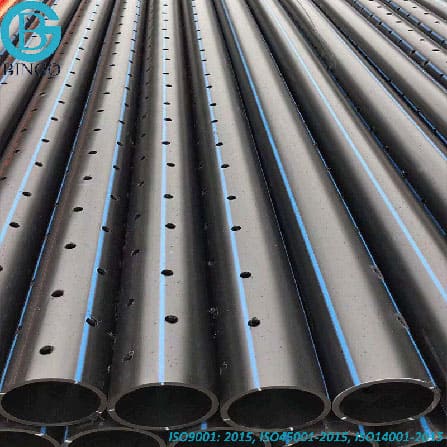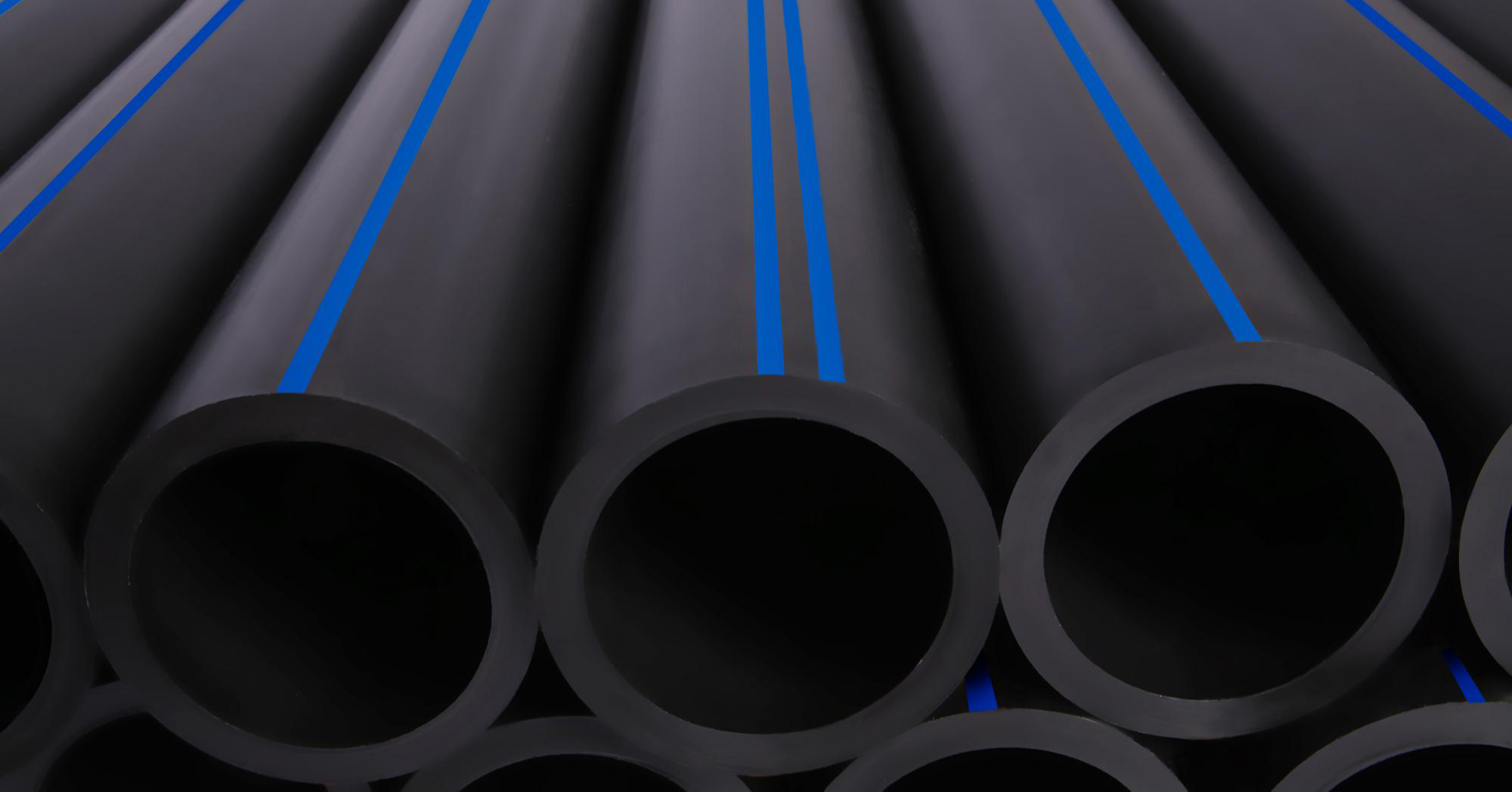Recognizing the Key Advantages of HDPE Pipe for Water and Wastewater Management
The usage of HDPE pipeline in water and wastewater monitoring offers countless benefits that merit factor to consider. Its phenomenal durability and lengthy life expectancy make it a favored selection for lots of jobs. In addition, the material's resistance to deterioration and chemical damages boosts its reliability in different atmospheres. Nevertheless, the advantages extend beyond simply long life and resistance. Discovering its cost-effectiveness and ecological impact discloses even a lot more compelling reasons for its widespread fostering in modern-day framework
Phenomenal Toughness and Long Life

HDPE pipeline stands out for its extraordinary sturdiness and longevity, making it a preferred choice in water administration systems. Built from high-density polyethylene, these pipelines can endure significant stress and stress, making sure trustworthy efficiency in time. Their robust nature permits them to endure extreme environmental conditions, including temperature fluctuations and soil motions, which can trigger various other products to fall short.
The life-span of HDPE pipes frequently exceeds half a century, providing an economical solution for towns and sectors alike. Additionally, the material's lightweight residential properties streamline setup, decreasing labor prices and durations. This longevity decreases the need for frequent repair work or replacements, additionally enhancing its economic appeal.
In water management applications, the dependability of HDPE pipelines suggests fewer interruptions and improved service continuity, making them integral to sustainable facilities growth. The combination of longevity and durability solidifies HDPE's duty as a keystone in reliable water monitoring services.

Resistance to Deterioration and Chemical Damages
While several products succumb to corrosion and chemical damages over time, HDPE pipelines show remarkable resistance, making them excellent for different water administration applications. This strength stems from the molecular framework of high-density polyethylene, which is inherently non-reactive and does not wear away like steels or deteriorate from exposure to extreme chemicals. Consequently, HDPE is extremely efficient in environments with aggressive substances, such as wastewater systems that might have acids, bases, and natural solvents.
In addition, HDPE pipelines can stand up to environmental variables such as soil level of acidity and saline problems, better boosting their suitability for varied applications (Pipe Supplier American Plastics Midland). Their ability to keep structural integrity with time lowers the risk of leaks and failings, which is vital in guaranteeing the security and reliability of water distribution and wastewater administration systems. The resistance to rust and chemical damages noticeably contributes to the total effectiveness and longevity of HDPE piping remedies.
Cost-Effectiveness and Economic Advantages
When taking into consideration the economic implications of water monitoring systems, the cost-effectiveness of HDPE pipelines becomes obvious. These pipelines offer reduced setup and maintenance costs compared to traditional products like metal or concrete. Their light-weight nature streamlines transportation and installment, causing lowered labor expenses. In addition, HDPE pipes exhibit a long life expectancy, often going beyond half a century, which converts to fewer replacements and lasting financial savings.
Furthermore, the resistance of HDPE to deterioration and chemical damages decreases the requirement for expensive fixings and substitutes. The pipes likewise sustain effective water flow, lowering power moved here prices associated with pumping systems. By mitigating leaks and water loss, HDPE pipelines add to substantial financial advantages for districts and sectors alike. On the whole, the initial financial investment in HDPE piping can yield significant financial returns over the life expectancy of the water monitoring system, making it sewer camera inspection services a sensible choice for sustainable framework growth.
Ecological Sustainability and Minimized Influence

Versatility and Flexibility in Installation
Due to their distinct homes, HDPE pipelines use impressive flexibility and flexibility in installation, making them ideal for a vast array of applications. Their lightweight nature permits easier handling and transportation, minimizing labor costs and setup time. HDPE pipelines can be curved and formed to fit different terrains and task needs, which is specifically useful in testing environments.
Additionally, their resistance to deterioration and chemical damage permits installation in varied settings without the requirement for specialized protective coverings. The capability to fuse joints creates a constant, leak-free system, improving the total integrity and integrity of the setup. HDPE's flexibility also fits ground motion, minimizing the threat of damages in locations vulnerable to shifting soil. Generally, these qualities make HDPE pipes not only flexible but also a preferred option for water and wastewater administration systems.
Regularly Asked Concerns
How Does HDPE Pipeline Contrast to PVC in Water Management Applications?
HDPE pipe uses superior versatility, resistance to corrosion, and durability compared to PVC. Its lighter weight assists in much easier installation, while its lengthy lifespan reduces substitute expenses, making HDPE a preferred option in water management applications.
What Is the Life Expectancy of HDPE Pipeline Under Typical Problems?
Under regular conditions, HDPE pipelines can have a lifespan varying from 50 to 100 years. Their longevity and resistance to deterioration add to their long-lasting efficiency in different applications, making them a reliable selection for facilities.
Are HDPE Piping Recyclable After Their Service Life?
Yes, HDPE pipes are recyclable after their service life. American Plastics HDPE Pipe Manufacturing. They can be refined and repurposed into brand-new items, significantly decreasing ecological impact and promoting sustainability within the market, making them an environment-friendly choice for piping solutions
What Is the Installment Process for HDPE Water Lines?
The setup process for HDPE pipes entails site prep work, trenching, pipe fusion or mechanical joining, backfilling, and stress screening. Proper techniques guarantee a long lasting and effective system for transferring water and wastewater successfully.
Can HDPE Pipes Be Made Use Of for Both Potable and Non-Potable Water Solutions?
Yes, HDPE pipes can be used for both drinkable and non-potable water supply. Their flexibility, longevity, and resistance to rust make them suitable for different applications, making sure risk-free and reliable transport of water in different contexts.